|
Books Should Be Free Loyal Books Free Public Domain Audiobooks & eBook Downloads |
|
|
Books Should Be Free Loyal Books Free Public Domain Audiobooks & eBook Downloads |
|
Science |
|---|
|
Book type:
Sort by:
View by:
|
By: Katharine Elizabeth Dopp (1863-1944) | |
|---|---|
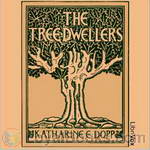 The Tree-Dwellers
The Tree-Dwellers
Katharine E. Dopp was well-known as a teacher and writer of children’s textbooks at the turn of the 20th Century. She was among the first educators to encourage the incorporation of physical and practical activity into the elementary school curriculum at a time when such activities were becoming less commonplace in a child’s home environment. The Tree-Dwellers – The Age of Fear is the first in a series of elementary school texts written by Ms. Dopp that focus on the anthropological development of early human groups... | |
By: Oliver Lodge (1851-1940) | |
|---|---|
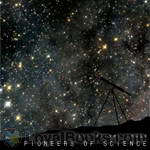 Pioneers of Science
Pioneers of Science
This book takes its origin in a course of lectures on the history and progress of Astronomy arranged for Sir Oliver Lodge in the year 1887. The first part of this book is devoted to the biographies and discoveries of well known astronomers like Copernicus, Brahe, Kepler, Galileo and Newton. In the second part, the biographies take a back seat, while scientific discoveries are discussed more extensively, like the discovery of Asteroids and Neptune, a treatise on the tides and others. | |
By: Hamilton Wright Mabie (1846-1916) | |
|---|---|
 Essays on Work and Culture
Essays on Work and Culture
The author investigates the world of work against a backdrop of culture. Each of the 25 essays focuses on one aspect of the topic. For example, the first essay, "Tool or Man?" looks at two views of man. One is that of strength as the provider of security. The other is that of aesthete, as an enthusiast of the arts or academics or religion. In our culture, provider of security is the winner every time. Man as a source of multiple talents cannot be allowed. As the author frames the argument, "Specialisation has been carried so far that it has become an organised tyranny... | |
By: Friedrich Engels (1820-1895) | |
|---|---|
 Condition of the Working-Class in England in 1844
Condition of the Working-Class in England in 1844
This is Engels' first book (since considered a classic account of England's working class in the industrial age), which argues that workers paid a heavy price for the industrial revolution that swept the country. Engels wrote the piece while staying in Manchester from 1842 to 1844, based on th bohis observations and several contemporary reports conducted over the period. | |
By: David Eugene Smith (1860-1944) | |
|---|---|
 The Hindu-Arabic Numerals
The Hindu-Arabic Numerals
| |
By: Kate Douglas Smith Wiggin (1856-1923) | |
|---|---|
 The Girl Scouts: A Training School for Womanhood
The Girl Scouts: A Training School for Womanhood
| |
By: Edmund Burke (1729-1797) | |
|---|---|
 The Works of the Right Honourable Edmund Burke, Vol. 09 (of 12)
The Works of the Right Honourable Edmund Burke, Vol. 09 (of 12)
| |
By: Gottfried Wilhelm Leibniz (1646-1716) | |
|---|---|
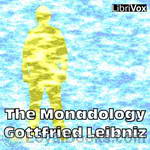 The Monadology
The Monadology
The Monadology (La Monadologie, 1714) is one of Gottfried Leibniz’s best known works representing his later philosophy. It is a short text which sketches in some 90 paragraphs a metaphysics of simple substances, or monads. What he proposed can be seen as a modification of occasionalism developed by latter-day Cartesians. Leibniz surmised that there are indefinitely many substances individually ‘programmed’ to act in a predetermined way, each program being coordinated with all the others. This is the pre-established harmony which solved the mind body problem at the cost of declaring any interaction between substances a mere appearance, something which Leibniz accepted... | |
By: Mayne Reid (1818-1883) | |
|---|---|
 Quadrupeds, What They Are and Where Found A Book of Zoology for Boys
Quadrupeds, What They Are and Where Found A Book of Zoology for Boys
| |
By: John W. Campbell (1910-1971) | |
|---|---|
 The Ultimate Weapon
The Ultimate Weapon
The star Mira was unpredictably variable. Sometimes it was blazing, brilliant and hot. Other times it was oddly dim, cool, shedding little warmth on its many planets. Gresth Gkae, leader of the Mirans, was seeking a better star, one to which his "people" could migrate. That star had to be steady, reliable, with a good planetary system. And in his astronomical searching, he found Sol.With hundreds of ships, each larger than whole Terrestrial spaceports, and traveling faster than the speed of light, the Mirans set out to move in to Solar regions and take over... | |
By: John Wood Campbell Jr. (1910-1971) | |
|---|---|
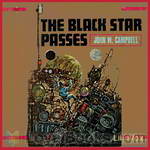 The Black Star Passes
The Black Star Passes
A sky pirate armed with superior weapons of his own invention... First contact with an alien race dangerous enough to threaten the safety of two planets... The arrival of an unseen dark sun whose attendant marauders aimed at the very end of civilization in this Solar System. These were the three challenges that tested the skill and minds of the brilliant team of scientist-astronauts Arcot, Wade, and Morey. Their initial adventures are a classic of science-fiction which first brought the name of their author, John W. Campbell, into prominence as a master of the inventive imagination. | |
By: John Wood Campbell. Jr. (1910-1971) | |
|---|---|
 Islands of Space
Islands of Space
As Earth's faster-than-light spaceship hung in the void between galaxies, Arcot, Wade, Morey and Fuller could see below them, like a vast shining horizon, the mass of stars that formed their own island universe. Morey worked a moment with his slide rule, then said, "We made good time! Twenty-nine light years in ten seconds! Yet you had it on at only half power...." Arcot pushed the control lever all the way to full power. The ship filled with the strain of flowing energy, and sparks snapped in the air of the control room as they raced at an inconceivable speed through the darkness of intergalactic space... | |
 Invaders from the Infinite
Invaders from the Infinite
The famous scientific trio of Arcot, Wade and Morey, challenged by the most ruthless aliens in all the universes, blasted off on an intergalactic search for defenses against the invaders of Earth and all her allies. World after world was visited, secret after secret unleashed, and turned to mighty weapons of intense force--and still the Thessian enemy seemed to grow in power and ferocity. Mighty battles between huge space armadas were but skirmishes in the galactic war, as the invincible aliens savagely advanced and the Earth team hurled bolt after bolt of pure ravening energy--until it appeared that the universe itself might end in one final flare of furious torrential power.... | |
By: Henry Ernest Dudeney | |
|---|---|
 Amusements in Mathematics
Amusements in Mathematics
AMUSEMENTS IN MATHEMATICSby HENRY ERNEST DUDENEYPREFACEIn issuing this volume of my Mathematical Puzzles, of which some have appeared in periodicals and others are given here for the first time, I must acknowledge the encouragement that I have received from many unknown correspondents, at home and abroad, who have expressed a desire to have the problems in a collected form, with some of the solutions given at greater length than is possible in magazines and newspapers. Though I have included a few old puzzles that have interested the world for generations, where I felt that there was something new to be said about them, the problems are in the main original... | |
By: A. T. Mahan (1840-1914) | |
|---|---|
 Lessons of the war with Spain and other articles
Lessons of the war with Spain and other articles
| |
By: William E. B. Du Bois (1868-1963) | |
|---|---|
 The Negro
The Negro
| |
By: Michael Faraday (1791-1867) | |
|---|---|
 The Chemical History of a Candle
The Chemical History of a Candle
The Chemical History of a Candle is a series of 6 lectures on chemistry presented to a juvenile audience in 1848. Taught by Michael Faraday - a chemist and physist, and regarded as the best experimentalist in the history of science - it is probably the most famous of the Christmas Lectures of the Royal Society. Taking the everyday burning of a candle as a starting point, Faraday spans the arc from combustion and its products, via the components of water and air (oxygen, hydrogen, nitrogen, carbon), back to the type of combustion that happens in the human body when we breathe... | |
By: Poul William Anderson (1926-2001) | |
|---|---|
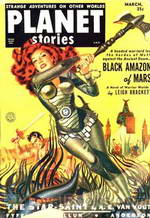 Duel on Syrtis
Duel on Syrtis
| |
By: T. H. Pardo de Tavera (1857-1925) | |
|---|---|
 The Medicinal Plants of the Philippines
The Medicinal Plants of the Philippines
| |
By: Glenn D. Bradley (1884-1930) | |
|---|---|
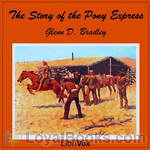 The Story of the Pony Express
The Story of the Pony Express
The Story of the Pony Express offers an in depth account behind the need for a mail route to connect the eastern U.S. with the rapidly populating west coast following the gold rush of California, the springing up of lumber camps, and all incidental needs arising from the settling of the western frontier. Here we learn of the inception of the Pony Express, its formation, successes, failures, facts, statistics, combined with many anecdotes and names of the people who were an integral part of this incredible entity which lasted but less than two years, yet was instrumental in the successful settlement of two thirds of the land mass comprising the expanding country... | |
By: Allan Pinkerton (1819-1884) | |
|---|---|
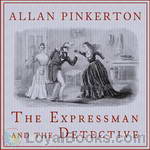 The Expressman and the Detective
The Expressman and the Detective
Allan Pinkerton (1819-1884), a Scotsman by birth and a barrel-maker by trade, settled in Chicago in its infancy and founded the Pinkertons, the world's first detective agency. Though events associated with the agency after his death have tarnished the name, Pinkerton himself was one of the original human rights advocates. He was a dear friend to John Brown, an advisor to Abraham Lincoln, and 80 years ahead of his time in hiring female detectives. He was also stubborn, irascible, and an egomaniac... | |
 The Burglar's Fate And The Detectives
The Burglar's Fate And The Detectives
| |
 Bucholz and the Detectives
Bucholz and the Detectives
| |
By: Robert Sterling Yard (1861-1945) | |
|---|---|
 The Book of the National Parks
The Book of the National Parks
Robert Sterling Yard (February 1, 1861 – May 17, 1945) was an American writer, journalist, and wilderness activist. Born in Haverstraw, New York, Yard graduated from Princeton University and spent the first twenty years of his career in the editing and publishing business. In 1915, he was recruited by his friend Stephen Mather to help publicize the need for an independent national park agency. Their numerous publications were part of a movement that resulted in legislative support for a National Park Service (NPS) in 1916... | |
By: Robert Hugh Benson (1871-1914) | |
|---|---|
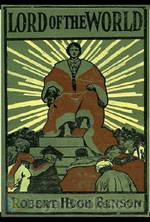 Lord of the World
Lord of the World
“Mr. Benson sees the world, four or five generations hence, free at last from all minor quarrels, and ranged against itself in two camps, Humanitarianism for those who believe in no divinity but that of man, Catholicism for those who believe in no divinity but that of God.” This apocalyptic novel from the early 1900's is sometimes deemed one of the first modern dystopias. | |
By: Michel Verne (1861-1925) | |
|---|---|
 In the Year 2889
In the Year 2889
| |
By: Ida B. Wells-Barnett (1862-1931) | |
|---|---|
 Southern Horrors: Lynch Law In All Its Phases
Southern Horrors: Lynch Law In All Its Phases
Thoroughly appalled and sickened by the rising numbers of white-on-black murders in the South since the beginning of Reconstruction, and by the unwillingness of local, state and federal governments to prosecute those who were responsible, Ida Bell Wells-Barnett wrote Southern Horrors, a pamphlet in which she exposed the horrible reality of lynchings to the rest of the nation and to the world. Wells explained, through case study, how the federal government's failure to intervene allowed Southern states... | |
By: W. Hamilton Gibson (1850-1896) | |
|---|---|
 My Studio Neighbors
My Studio Neighbors
| |
By: James C. Philip (1873-1941) | |
|---|---|
 The Romance of Modern Chemistry
The Romance of Modern Chemistry
A fascinating look back at the state of the art of chemistry 100 years ago, this book by James C. Philip, PhD, an assistant professor of chemistry at The Imperial College of Science and Technology, Kensington, provides a "description in non-technical language of the diverse and wonderful way which chemical forces are at work, and their manifold application in modern life" in 1910. Professor Philip relates many of the key chemical discoveries of early academic researchers in the context of the practical uses to which these discoveries were applied in the early 20th century. | |
By: Oliver Herford (1863-1935) | |
|---|---|
 A Child's Primer Of Natural History
A Child's Primer Of Natural History
| |
By: Margaret W. Lewis | |
|---|---|
 Object Lessons on the Human Body A Transcript of Lessons Given in the Primary Department of School No. 49, New York City
Object Lessons on the Human Body A Transcript of Lessons Given in the Primary Department of School No. 49, New York City
| |
By: Archibald Williams | |
|---|---|
 How it Works Dealing in simple language with steam, electricity, light, heat, sound, hydraulics, optics, etc., and with their applications to apparatus in common use
How it Works Dealing in simple language with steam, electricity, light, heat, sound, hydraulics, optics, etc., and with their applications to apparatus in common use
| |
By: Paul Ehrlich (1854-1915) | |
|---|---|
 Histology of the Blood
Histology of the Blood
This is a textbook on the science of blood and bloodwork by (1908) Nobel Prize winner, Dr. Paul Ehrlich. Should appeal to hematologists, phlebotomists, and just plain folks interested in how our bodies work. | |
By: Rick Raphael (1919-1994) | |
|---|---|
 Code Three
Code Three
| |
 A Filbert Is a Nut
A Filbert Is a Nut
| |
 The Thirst Quenchers
The Thirst Quenchers
| |
 Sonny
Sonny
| |
By: Marie Curie (1867-1934) | |
|---|---|
 Radioactive Substances
Radioactive Substances
Marie Curie, born in Warsaw in 1867, was a French physicist and chemist famous for her work on radioactivity. She was a pioneer in the field of radioactivity and the first person honored with two Nobel Prizes - in physics (1903) and chemistry (1911). The risks of working with strongly radioactive materials were not known at that time, and she eventually died in 1934 from an illness likely caused by radiation poisoning.Radioactive Substances is the thesis of Marie Curie, presented to the Faculté de Sciences de Paris in 1903, and subsequently published in "Chemical News" vol 88, 1903... | |
By: James H. Schmitz (1911-1981) | |
|---|---|
 The Winds of Time
The Winds of Time
| |
 An Incident on Route 12
An Incident on Route 12
| |
 Gone Fishing
Gone Fishing
| |
 The Star Hyacinths
The Star Hyacinths
| |
 The Other Likeness
The Other Likeness
| |
 Watch the Sky
Watch the Sky
| |
 Novice
Novice
| |
 Ham Sandwich
Ham Sandwich
| |
 Oneness
Oneness
| |
By: John Addington Symonds (1840-1893) | |
|---|---|
 A Problem in Modern Ethics
A Problem in Modern Ethics
“Society lies under the spell of ancient terrorism and coagulated errors. Science is either wilfully hypocritical or radically misinformed.” John Addington Symonds struck many an heroic note in this courageous (albeit anonymously circulated) essay. He is a worthy Virgil guiding the reader through the Inferno of suffering which emerging medico-legal definitions of the sexually deviant were prepared to inflict on his century and on the one which followed. Symonds pleads for sane human values in... | |
By: William J. (William Josephus) Robinson (1867-1936) | |
|---|---|
 Woman Her Sex and Love Life
Woman Her Sex and Love Life
| |
By: Hugo Münsterberg (1863-1916) | |
|---|---|
 Psychotherapy
Psychotherapy
Talking about viewing the Ocean "If I take the attitude of appreciation, it would be absurd to say that this wave is composed of chemical elements which I do not see; and if I take the attitude of physical explanation, it would be equally absurd to deny that such elements are all of which the wave is made. From the one standpoint, the ocean is really excited; from the other standpoint, the molecules are moving according to the laws of hydrodynamics. If I want to understand the meaning of this scene every reminiscence of physics will lead me astray; if I want to calculate the movement of my boat, physics alone can help me".(from the Introduction) | |
By: George Sutherland (1855-1905) | |
|---|---|
 Twentieth Century Inventions: A Forecast
Twentieth Century Inventions: A Forecast
This work from 1901 predicts what technological developments will manifest in the twentieth century. The author, a technical journalist, presents ideas for inventions and new developments in the areas of power, transportation, agriculture, mining, domestic applications, electronic devices, warfare, music, art, and news. Many have come to pass. All of them provide an interesting look into how the next century was imagined and what challenges were anticipated for the progress of society. - | |
By: Cleveland Moffett (1863-1926) | |
|---|---|
 The Conquest of America A Romance of Disaster and Victory: U.S.A., 1921 A.D.
The Conquest of America A Romance of Disaster and Victory: U.S.A., 1921 A.D.
| |
 Possessed
Possessed
| |
By: Charles Boutell (1812-1877) | |
|---|---|
 The Handbook to English Heraldry
The Handbook to English Heraldry
| |
By: Bradford Torrey (1843-1912) | |
|---|---|
 A Florida Sketch-Book
A Florida Sketch-Book
This is a series of late-19th Century essays about Florida’s flora & fauna written by a Massachusetts-based naturalist. | |
 Birds in the Bush
Birds in the Bush
| |
 The Foot-path Way
The Foot-path Way
| |
By: Bhakti Seva | |
|---|---|
 The Hindu Book of Astrology
The Hindu Book of Astrology
Each person is born in or under one of the twelve signs of the Zodiac and is thus influenced throughout life by the planetary conditions at their time of birth. By referring to your sign, which is indicated by your date and month of birth you can determine your natural tendencies and what is best for you to attract. No matter what one of the twelve signs of the Zodiac you are born under, you can develop into a good and successful person if you will pay strict attention to the golden truths printed in this book. (Bhakti Seva) | |
By: Maurice Maeterlinck (1862-1949) | |
|---|---|
 The Life of the Bee
The Life of the Bee
| |
 Our Friend the Dog
Our Friend the Dog
| |
By: G. E. Mitton | |
|---|---|
 The Children's Book of Stars
The Children's Book of Stars
| |
By: William Morgan (1774-1826?) | |
|---|---|
 The Mysteries of Free Masonry Containing All the Degrees of the Order Conferred in a Master's Lodge
The Mysteries of Free Masonry Containing All the Degrees of the Order Conferred in a Master's Lodge
| |
By: Ray Vaughn Pierce | |
|---|---|
 The People's Common Sense Medical Adviser
The People's Common Sense Medical Adviser
The People's Common Sense Medical Adviser In Plain English, Or, Medicine Simplified. By R.V. Pierce, M.D. INTRODUCTORY WORDS. Health and disease are physical conditions upon which pleasure and pain, success and failure, depend. Every individual gain increases public gain. Upon the health of its people is based the prosperity of a nation; by it every value is increased, every joy enhanced. Life is incomplete without the enjoyment of healthy organs and faculties, for these give rise to the delightful sensations of existence... | |
By: Clarence Darrow (1857-1938) | |
|---|---|
 Industrial Conspiracies
Industrial Conspiracies
| |
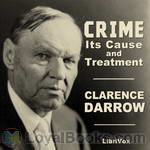 Crime: Its Cause and Treatment
Crime: Its Cause and Treatment
Clarence Darrow was an American lawyer. He remains notable for his wit and agnosticism, which marked him as one of the most famous American lawyers and civil libertarians.In this book, Darrow expands on his lifelong contention that psychological, physical, and environmental influences—not a conscious choice between right and wrong—control human behavior. To my ears (the reader's), the author has a rather simplistic behaviourist view of human behaviour, but he argues his position with wonderful clarity... | |
By: Walter Bagehot (1826-1877) | |
|---|---|
 Physics and Politics, or, Thoughts on the application of the principles of "natural selection" and "inheritance" to political society
Physics and Politics, or, Thoughts on the application of the principles of "natural selection" and "inheritance" to political society
| |
By: Joseph Maclise | |
|---|---|
 Surgical Anatomy
Surgical Anatomy
| |
By: Fredric Brown (1906-1972) | |
|---|---|
 Earthmen Bearing Gifts
Earthmen Bearing Gifts
| |
 Two Timer
Two Timer
| |
 Keep Out
Keep Out
| |
 Hall of Mirrors
Hall of Mirrors
| |
By: John Harvey Kellogg (1852-1943) | |
|---|---|
 Plain Facts for Old and Young
Plain Facts for Old and Young
| |
 First Book in Physiology and Hygiene
First Book in Physiology and Hygiene
| |
By: Auguste Forel (1848-1931) | |
|---|---|
 The Sexual Question A Scientific, psychological, hygienic and sociological study
The Sexual Question A Scientific, psychological, hygienic and sociological study
| |
By: Orison Swett Marden (1850-1924) | |
|---|---|
 How to Succeed
How to Succeed
In this volume, Orison Swett Marden explains the road to success in simple terms for the benefit of anyone, who wishes to follow in his footsteps. Over 100 years after publication, most of these lessons are still valid today. | |
By: Gregor Mendel | |
|---|---|
 Experiments in Plant Hybridisation
Experiments in Plant Hybridisation
Gregor Mendel (1822 - 1884) was an Augustinian monk in the St. Thomas monastery in Brno. His seminal paper "Experiments on Plant Hybridization" presents his results of studying genetic traits in pea plants. It is the ground breaking work on inheritance, being the first to differentiate between dominant and recessive genetic traits. His work was long ignored and deemed controversial, however, at its rediscovery at the turn to the 20th century, it earned Gregor Mendel the title "father of modern genetics". | |
By: Howard I. Chapelle (1901-1975) | |
|---|---|
 The Pioneer Steamship Savannah: A Study for a Scale Model United States National Museum Bulletin 228, 1961, pages 61-80
The Pioneer Steamship Savannah: A Study for a Scale Model United States National Museum Bulletin 228, 1961, pages 61-80
| |
 The Migrations of an American Boat Type
The Migrations of an American Boat Type
| |
By: Frank Herbert (1920-1986) | |
|---|---|
 Old Rambling House
Old Rambling House
| |
 Operation Haystack
Operation Haystack
| |
By: Douglas Houghton Campbell (1859-1953) | |
|---|---|
 Elements of Structural and Systematic Botany For High Schools and Elementary College Courses
Elements of Structural and Systematic Botany For High Schools and Elementary College Courses
| |
By: Edward V. Lucas (1868-1938) | |
|---|---|
 The War of the Wenuses
The War of the Wenuses
| |
By: Laurence M. Janifer (1933-2002) | |
|---|---|
 Lost in Translation
Lost in Translation
| |
 The Man Who Played to Lose
The Man Who Played to Lose
| |
 Sight Gag
Sight Gag
| |
 Hex
Hex
| |
 Charley de Milo
Charley de Milo
| |
By: Erasmus Darwin (1731-1802) | |
|---|---|
 Zoonomia, Vol. I Or, the Laws of Organic Life
Zoonomia, Vol. I Or, the Laws of Organic Life
| |